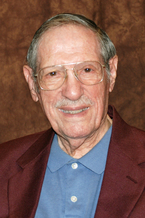"For half a century, Robert Traina's method of inductive Bible study has taught students the most important critical-thinking skill of all: how to read! Now David Bauer adds to the collaborative mix his own formidable strengths. This volume lays an essential foundation for critical analysis and careful exegesis."--David A. deSilva, Ashland Theological Seminary
Robert Traina's classic Methodical Bible Study transformed the way many people studied the Bible in the latter half of the twentieth century and became recognized as the most authoritative presentation of inductive Bible study available. This new work introduces the practice of inductive Bible study to a new generation of students, pastors, and church leaders. The authors, two seasoned educators with over sixty combined years of experience in the classroom, offer guidance on adopting an inductive posture and provide step-by-step instructions on how to do inductive Bible study. They engage in conversation with current hermeneutical issues, trends, schools, and figures as they set forth well-grounded principles and processes for biblical interpretation and appropriation.
The book offers a holistic and integrated approach to the study of the Bible, showing how readers can bring together the various facets and methods of biblical study to arrive at original, penetrating, well-grounded interpretation and contemporary appropriation. The process presented incorporates various methods of biblical study to help readers hear the message of the Bible on its own terms. Inductive Bible Study includes a sustained example of the entire process, using 2 Timothy 3:16-17, and many examples of specific aspects or tasks of biblical study taken from passages throughout the biblical canon. It will benefit professors and students in courses on Bible study methods, interpretation, and hermeneutics as well as pastors and church leaders.
Contents
Foreword by Eugene H. Peterson
Introduction
Part 1: Theoretical Foundations
1. Inductive Study
2. Transjective Study
3. Intentional and Rational Study
4. Re-Creative Study
5. Direct Study
6. Comprehensive and Integrated Study
7. Individual and Communal Study
8. Compositional Book Study
9. Canonical Study
10. Flexible Procedural Study
Part 2: Observing and Asking
11. Survey of Books-as-Wholes
12. Survey of Parts-as-Wholes (Divisions, Sections, Segments)
13. Focused Observation
Part 3: Answering or Interpreting
14. Selecting Questions and Formulating Premises
15. Drawing Inferences from the Premises
16. Implementing Interpretation
Part 4: Evaluating and Appropriating
17. Description of Evaluation and Appropriation
18. Implementing Evaluation and Appropriation
Part 5: Correlation
19. Character and Practice of Correlation
20. Implementing Correlation
Epilogue
Appendix A: General Discussion of Induction and Deduction
Appendix B: Presuppositions in Contemporary Hermeneutical Discussion
Appendix C: Selectivity
Appendix D: The Use of Original-Language Resources
Appendix E: Critical Methods in Inductive Bible Study
Appendix F: Logical Outlines
Indexes
Endorsements
"I have personally used Bauer and Traina's method of inductive Bible study for more than twenty-five years and can testify to its effectiveness for understanding Scripture in ways that are both academically responsible and pastorally relevant. The approach allows Scripture to reveal itself, to speak on its own terms in ways that overcome the limitations and presuppositions of its readers. It allows the Bible to surprise us, challenge us, comfort us, or correct us in the very fashion that the original authors and the God who inspired them would want. This volume presents that time-honored approach for a new generation--and it is a remarkable achievement! Students will appreciate a text that is so immediately accessible and, eventually, will come to treasure this volume as a handbook to be consulted repeatedly throughout their professional careers."--Mark Allan Powell, professor of New Testament, Trinity Lutheran Seminary
"Many of us learned years ago to begin Bible study for ourselves with 'observation, interpretation, and application,' doing as much as possible on our own before turning to other resources. We may not have known one of the classic sources that outlined this method in comprehensive detail by Robert Traina. Now masterfully updated, with state-of-the-art scholarship and bibliographic references, this tome has been made useful for a new generation by David Bauer and Robert Traina. Part hermeneutics, part exegesis, part philosophy and logic, with numerous illustrations from Scripture itself, Inductive Bible Study does not supplant the standard works in each of these areas but helpfully supplements many of them."--Craig L. Blomberg, distinguished professor of New Testament, Denver Seminary
"For half a century, Robert Traina's method of inductive Bible study has taught students the most important critical-thinking skill of all: how to read! His method trains people to attend closely to what is in a text and what is not in a text, to follow a text's argument, and to map its narrative flow. Now David Bauer adds to the collaborative mix his own formidable strengths as an experienced teacher of inductive Bible study and as an internationally recognized biblical scholar. Together they present a finely honed guide to the process of observation, interpretation, and appropriation, enhanced with examples of how to execute each step and with helpful discussions about both the place of their approach in the landscape of contemporary hermeneutical debates and the connections between critical approaches and their inductive method. This volume lays an essential foundation for critical analysis and careful exegesis."--David A. deSilva, Trustees' Distinguished Professor of New Testament and Greek, Ashland Theological Seminary
"A couple of years before I entered his classroom, Professor Traina had written the book Methodical Bible Study. . . . Inductive Bible Study is an expansion of that early text by Professor Traina and his colleague Professor Bauer. As I read this sequel, memories of my first reading come alive again. I am giving witness to that early but never-diminishing delight. . . . The passion and patience that permeated that classroom instilled in me an inductive imagination: fiercely attentive to everything that is there and only what is there, alert to relationships both literary and personal, habitually aware of context--the entire world of creation and salvation that is being revealed in this Bible. And always the insistence that I do this firsthand, not filtered through the hearsay of others or the findings of experts. . . . The inductive imagination continued to develop into a biblical imagination. And not only for me. My sense is that this way of reading the Bible--and living the Bible--has been transformative for thousands; probably by now the number must run into the millions."--Eugene H. Peterson (from the foreword)
The Authors
-

David R. Bauer
David R. Bauer (PhD, Union Theological Seminary, Virginia) is Ralph Waldo Beeson Professor of Inductive Biblical Studies and dean of the School of Biblical Interpretation and Proclamation at Asbury Theological Seminary. He is the author of several books,...
-

Robert A. Traina
Robert A. Traina (1921-2010) was professor of English Bible at The Biblical Seminary in New York and at Asbury Theological Seminary for over forty years. He received his PhD from Drew University and authored the influential classic Methodical Bible Study.
Reviews
"This is the strength of Bauer and Traina's book, Inductive Bible Study: it starts from square-one by training people to attend to the content of Scripture, to follow a text's argument, map its narrative flow, and grasp its implications. . . . The volume is rife with helpful discussions about the range of contemporary hermeneutical debates. Dots are connected from these technical considerations to the inductive method, resulting in an exegesis handbook that is both practical and substantive."--Chris Castaldo, Credo
"Traina's original work [Methodical Bible Study] offered a more general description of inductive study. This update offers a specific and ordered process that can be applied directly to any biblical text. The authors view the primary audience as those preparing for vocational Christian ministry. . . . Throughout the work, in true pedagogical fashion, [the authors'] understanding is elaborated upon, repeated, and supplemented with numerous examples by these masters of the inductive approach. . . . This work is a welcomed addition to the field of hermeneutics."--Joshua E. Stewart, Journal of the Evangelical Theological Society
"Bauer and Traina have compiled one great book that ought to help many people read their Bibles better. They offer many charts and instructions to help the reader. . . . Those who are familiar with their Bibles or who have had some training in Bible study would be helped by this book. It also makes a great refresher for those . . . who have taken a few hermeneutics and exegesis classes. Excellence in any area of life--Bible study included--begins with the mastery of the fundamentals. Inductive Bible Study will help you master the fundamentals."--Jacob Sweeney, Semper Reformanda blog
"I would highly recommend [this book] for the serious reader/student. If readers follow through as the authors intend, they will find a clearly written, clearly elaborated exposition of the inductive method of Bible study. It has been tested for years among a large constituency, and should be of great value, not only to beginners, but even to seasoned students, many of whom are now in the teaching or pastoral professions."--Walter M. Dunnett, Anglican Theological Review
"This helpful and insightful guide by Bauer and Traina is intended as a follow-up to Traina's previous work, Methodical Bible Study. . . . Inductive Bible Study serves as a welcome addition to Traina's initial volume. One of the significant strengths of the volume lies in its methodological insistence that study of the Bible should begin with a thorough reading of the primary text. . . . Each step of the process is highlighted with specific examples of the methodology, making this a valuable text for students of the Bible. The positives of this volume are many. . . . This volume is a welcome and much-needed addition to biblical study in general and the inductive method in particular."--Justin Marc Smith, Review of Biblical Literature
